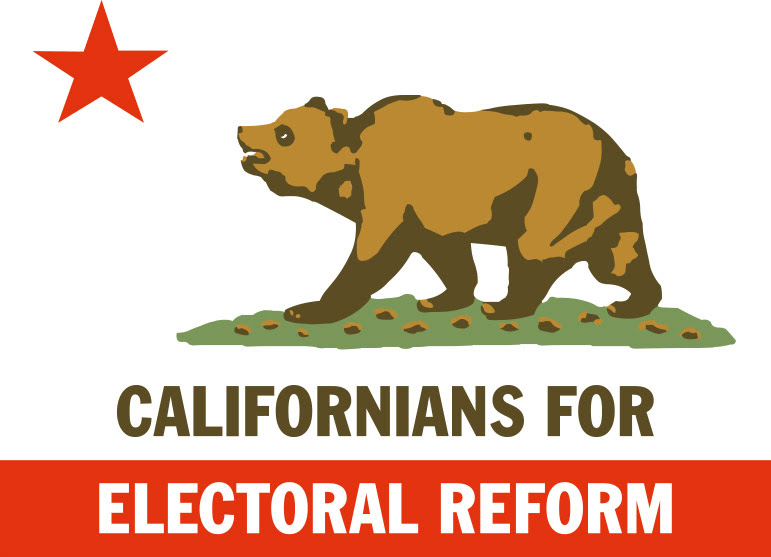- Why Electoral Reform?
- RCV
- PR
- Educational Resources
- Get Involved
- Become a Member
- Donate
- Support a Local RCV Campaign
- Bring RCV to your school or organization
- Get email updates
- Visit FairVote to learn more about nationwide electoral reforms
- Visit the Ranked Choice Voting Resource Center (for staff and elected officials)
- Visit Cal RCV to learn about RCV reform in California
- Visit ProRep Coalition to learn more about proportional representation in CA
- Latest News
- About CfER
- Search
Latest News
Find out the latest news from CfER
American Democracy Summit 2023
CfER attends the American Democracy Summit!
The American Democracy Summit was held in Los Angeles from September 26-29. Four CfER’s board members were able to attend; Steve Chessin, Paula Lee, Felix Ling, and Lorelei Moosbrugger – everyone had a great time! You can see some highlights from the summit below.
Voice for Democracy | July/August 2019
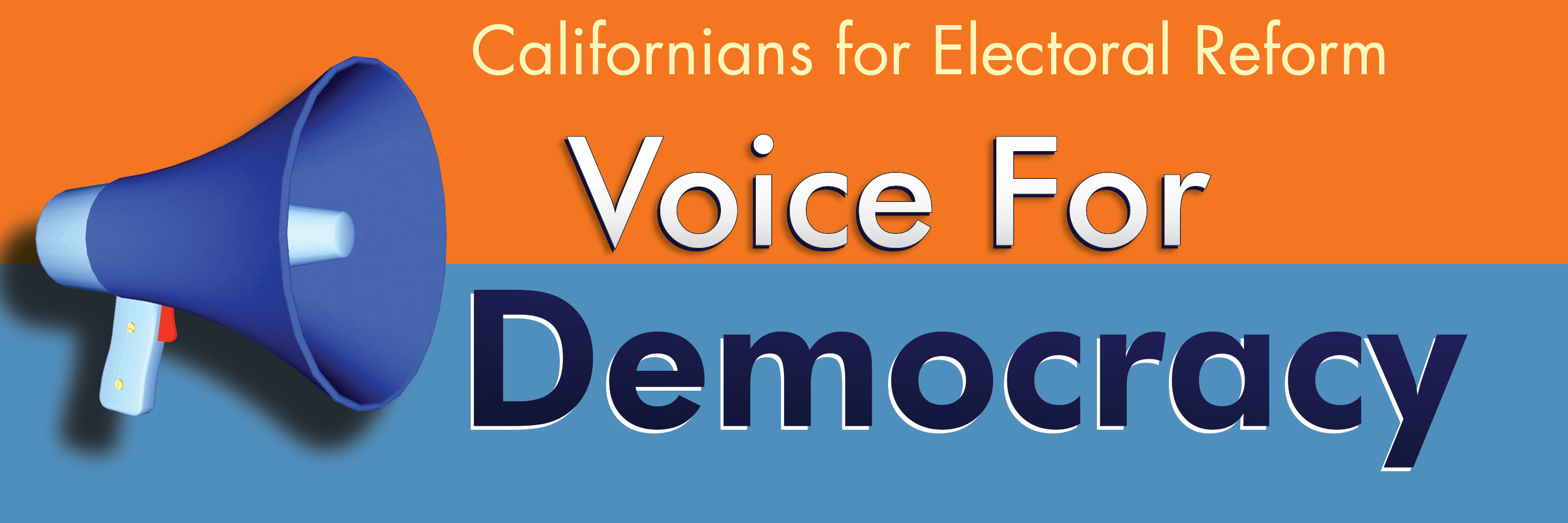
July / August 2019 Newsletter
HOME RULE BILL ADVANCES
The FairVote / CfER Home Rule Bill continues to advance through the California Legislature. It has already passed the Senate and moved to the Assembly. In the Assembly, It passed the Committee on Elections and Reapportionment with no opposition and has been referred to Assembly Appropriations Committee. We expect it to be passed on the floor of the Assembly, and to be sent to Governor Newsom for his signature.
What does the Home Rule Bill do? It will allow general law cities, counties, school districts, and special districts — that is, the overwhelming number of jurisdictions in California, to use Ranked Choice Voting with voter approval. Currently, a jurisdiction would have to create a charter to use RCV, which most jurisdictions are not interested in doing. Bottom line, a very large number of jurisdictions would suddenly have the option to use RCV.
How can you help? It would be great if you could contact your state assembly member (using findyourrep.legislature.ca.gov) and the governor, and ask for their support for SB 212.Of course, donations to FairVote and CfER are always welcome and useful.
NATIONAL NEWS HIGHLIGHTS
FairVote reports that:
- 2018 had big wins and new RCV implementations in Maine, New Mexico, Massachusetts, Minnesota and Utah.
- Across the USA, more and more editorials and articles in support of RCV are being published.
- Democratic Party convention delegate selection rules include full use of RCV for party-run primaries in Alaska, Hawaii and Kansas, while early voters in Iowa and Nevada will also cast RCV ballots to determine delegates. Other states may still act as well – and expect many more from both major parties by 2024.
- On the local front, RCV continues to earn support in cities and states coast-to-coast. The Utah cities Payson and Vineyard are working with Utah RCV to prepare for their debut RCV elections this fall. New York City is buzzing with potential for RCV after a positive recommendation in the Charter Revision Commission staff report. While falling just shy of a green light, Nashville’s city council also considered putting RCV on ballot before deciding to wait until next year, and Albuquerque may decide to enact RCV for use this fall.
- Meanwhile, state legislators keep backing and debating pro-RCV bills, with bills in 16 states still standing as of May. Besides California’s Home Rule bill, legislation still in the mix in other states includes expanding RCV to presidential and gubernatorial races in Maine, and comprehensive RCV legislation in Massachusetts – with Voter Choice Massachusetts ready to lead a ballot measure campaign in 2020 if need be.
NATIONAL POPULAR VOTE COMPACT — PROGRESS AND THREATS
The National Popular Vote Interstate Compact (NPVIC), if supported by enough states, will mean that the President of the United States will be elected by the national popular vote — without changing the electoral college. CfER has officially supported the NPVIC for years, and the state of California has joined the NPVIC a few years ago. For more detailed information on how it works, you can go to their web site: https://www.nationalpopularvote.com/.
With recent progress in a number of states, it is getting closer and closer to being a reality. The result is that opponents are now taking the NPVIC seriously, and are working to reverse it in Colorado. With some deep pockets, a group that is opposed to a national popular vote for president has successfully submitted a petition to force a vote of the people. While 68% of Coloradans support the concept of a national popular vote for president, we have to take this campaign very seriously.
You can help by talking to anyone you know in Colorado about this, and by donating to the NPVIC organizing group (using the link above).
2019 WILMA RULE AWARD RECIPIENTS
The 2019 Wilma Rule Awards have gone to:
- California Senator Ben Allen, who submitted SB 212 and has been working hard to make it successful. CfER is very appreciative of this important contribution and has selected Senator Allen for this award as a result.
- McGeorge Law Students Nick Barnett, Sunny Gill, and Henry Mantel, who worked hard and effectively to get SB 212 successfully submitted and endorsed by the state senate.
- Dominion Voting Systems for producing voting equipment certified for use in California elections that can process elections that use the single transferable vote form of proportional representation.
- Tom Charron for extensively redesigning the CfER web site, giving it a much more modern and attractive look.
DID YOU KNOW …?
The main idea behind RCV and Proportional Representation is to more accurately represent the voters, and to make every voter’s vote more powerful. This means that historically poorly represented groups, such as women and people of color, will finally be represented in much larger numbers when we use RCV and other PR systems. But it isn’t just them — with RCV, we can expect better representation for young people, for people in less wealthy parts of cities, and for whomever is in the political minority in a given city. Democracy and better policies work best when all the important constituencies are at the table, and no one is shut out of representation.
LOCAL NEWS
- San Francisco, Oakland, Berkeley, and San Leandro continue to successfully use RCV. There are no realistic threats to RCV in any of those cities at this time.
- Fort Bragg — the city of Fort Bragg is interested in RCV. The discussion on this is moving slowly, but it is happening. CfER, of course, is involved. One of our members, Don Rowe, is spearheading the effort, and we are providing support for this process as needed.
- Albany — as a result of many years of pushing RCV in Albany, and a potential violation of the CVRA in Albany, there is growing pressure on the city council to realize that its current winner take all system will have to be scrapped. They could go to district elections, but few people want districts in Albany, as the city is very small, and in addition, there aren’t a lot of natural neighborhoods. Therefore, using multi-member RCV is a real possibility in Albany.
- BART — a BART director has some interest in RCV, and we are working with her determine how to proceed.
Voice for Democracy | May/June 2019

![City of Eastpoint [Image]](https://ci6.googleusercontent.com/proxy/A6wE7PDd3SEKYBlmKNqnou1UtwUKQ8cCXeF8Q041_eNgJCImFtWUJqwWFcMUw3YLLubcytZf3rxnSLL7Y0TRzbxqmi6G=s0-d-e1-ft#https://www.cfer.org/newsletter/img/Eastpointe.png)
IMPORTANT VOTING RIGHTS SETTLEMENT IN MICHIGAN
RCV TO BE USED STARTING THIS NOVEMBER
Eastpointe, Michigan, had been using traditional at-large voting, which discriminates against minorities — both ethnic minorities and political minorities. In order to solve this problem, the city and the U.S. Department of Justice agreed to use Ranked Choice Voting city-wide as the best solution. Rank Choice Voting, when done city-wide, is a Proportional Representation system, so everyone expects there will proportionate representation for African-Americans in Eastpointe starting this November.
This impacts California, because this will show that RCV is the best solution when there are voting rights issues in a city or any other jurisdiction. In many cities, districts elections are used, and while they often do a decent job of solving the voting rights problem, they create other problems, such as dividing the city into mini-jurisdictions that often fight each other, and huge fights over how to draw the districts every ten years.
For more, see this article from FairVote.
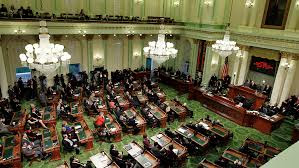
LOCAL CHOICE ACT PASSED IN THE SENATE
SB 212, the Local Choice Act, passed the California Senate 28-8 this April. SB 212 is CfER’s top legislative priority and would allow each of the 377 general law cities in California to use Ranked Choice Voting upon approval of their voters. Currently, general law cities are prohibited from using RCV — they first have to become charter cities. SB 212 also covers school boards and other jurisdictions. Finally, it puts RCV into the state elections code, which will help calm nervous election staff.
This is a really big deal. Next we have to get it through the Assembly. You can help by contacting your assembly member by phone, email, or even in person, and asking them for their support of SB 212.Go Local Choice Act!
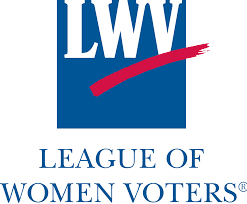
LEAGUE OF WOMEN VOTERS ADOPTS GREAT ELECTORAL PROCESS POSITION
The LWV is one the most highly respected and trusted groups by the American public, and the California LWV now has a position on how we elect our representatives. The California LWV has recently adopted a position that allows any local branch of the LWV in California to support RCV for multiple winner elections. The California LWV has supported RCV for single-winner elections since 2001. While this position does not support any one particular system, it does support alternatives to plurality voting for single and multiple winner elections. The position is based on electoral system studies and developed positions from 15 State Leagues and can be used to evaluate or propose an electoral system change that would increase voter representation, especially for political and ethnic minority voices. It will also be considered at the LWVUS convention in 2020 as a national position.
This is a huge win for our movement because now the LWV is aligned with our goals to increase voter representation via electoral system reform. This new position, which has also been adopted by the Tennessee State League, includes support for voter education when proposing changes to electoral systems. It will allow local RCV campaigns to gain momentum and support in California and Tennessee communities. Local Leagues can now support single-winner and multiple-winner RCV campaigns without having to do their own study.
Please contact Paula Lee to get a copy of the actual policy, and to get help with how to get your local chapter to officially endorse your RCV campaigns, support your RCV work, etc. You can reach Paula at paula.lee@comcast.net. Paula encourages CfER members to join the League of Women Voters in your community or county.

ELECTORAL REFORM QUIZ
Can you describe Ranked Choice Voting in 1 minute or less? How about 30 seconds or less? Stand in front of a mirror, and start your timer, can you do it?
(See the bottom of this newsletter for one possible 30-second “elevator pitch” for RCV.)
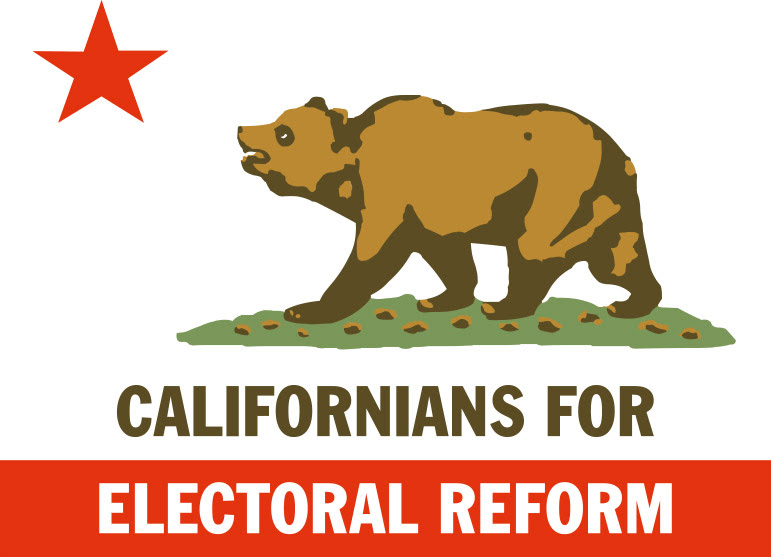
ABOUT CfER
Californians for Electoral Reform has been working for Proportional Representation and Ranked Choice Voting for over 20 years, and we continue to work on these issues actively. We are an action-oriented group, with chapters and contacts around the state, working in the State Legislature, and working in many local communities, promoting and educating about PR and RCV.
We have led successful campaigns for RCV in San Leandro, Oakland, San Francisco, and Berkeley, and spoken to thousands of people. RCV is now much more well known than it was 20 years ago, and is being seriously considered in several jurisdictions around the state. We have twice got legislation through both houses of the legislature and to the governor’s desk. We are well known in Sacramento and in electoral reform circles, and have a lot of respect in Sacramento and statewide.
JOIN US! You can join for free. You can also send in a little (or a lot of) money to help the movement if you can. If you have time and energy you can get involved in a campaign or education work. If a friend sent you this newsletter, and you want to get our quarterly newsletter and monthly updates, you can do that too, at no cost. Click here to join the movement for PR and IRV!
NEXT MONTH

In July, we’ll be bringing you a brief update on electoral reform.

THE ELECTORAL REFORM QUIZ ANSWER — ONE POSSIBLE 30 SECOND ELEVATOR PITCH FOR RCV
“Ranked Choice Voting gives voters more power because they don’t have to worry about vote spitting or spoiler candidates. It is very easy to vote using RCV.
You just put down your 1st, 2nd, and 3rd choices, and if your 1st choice doesn’t win, your vote goes to your 2nd choice. If your 2nd choice doesn’t win, your vote goes to your 3rd choice.
RCV is used in San Francisco, Oakland, San Leandro, and Berkeley, in many other cities in the USA, the state of Maine, and a number of countries including Australia and Ireland, and has worked very well in all of these cities and countries.”
— CfER Staff
Voice for Democracy | March/April 2019

March/April 2019 Update


HOME RULE BILL INTRODUCED
California Senate Bill #212 has been introduced, and was passed by the Senate Elections Committee April 23rd. This bill would allow ALL cities in California to use Ranked Choice Voting or two-round runoff if their citizens vote to use it. Currently, only charter cities are allowed to use RCV, but most cities don’t have their own charters, so they are not allowed to use RCV.
With your help, we can get this bill to Governor Newsom’s desk. Please help! First, click this link to Find Your Senator.
After you put in your name and address, it will show you who your senator and assembly representatives are. Click on the senator’s link. This will send you to their web page. On that page, there should be a Contact link, probably on the top of the screen. Click that link, which should open up a form for you to send a message to them.
What can you say? It doesn’t have to be long. It could just be a request for them to support and co-sponsor SB 212. If you want to say more, here are one or more points you can raise:* SB 212 does not impose anything on any jurisdictions — it just expands their rights.* The citizens of that city would have to vote to use RCV or two-round runoff elections.* Currently, most cities are forced to use a horrible election system: “plurality-at-large”, unless they become a charter city. Most cities do not want to become charter cities.* Plurality voting is oppressive to minorities, making it very hard for them to win seats because whichever groups have the most votes can win all the seats.* Plurality voting also results in under-representation of women on city councils.
* RCV is currently used in more than ten cities in the USA, including four cities in California.
When this bill becomes law, it will be a great day for California!
Voice for Democracy | February 2019

FEBRUARY UPDATE

GREAT NEWS ON THE NATIONAL POPULAR VOTE COMPACT
What is the National Popular Vote Compact (“NPV”)?
It is basically a way to work around the Electoral College. When it becomes law in enough states in the USA, then it means our presidents will be elected by the national popular vote. This will happen without having to change the constitution.
How the NPV Works (Officially, it is the National Popular Vote Interstate Compact or NPVIC. But just calling it the “NPV” for short.)
What does CfER have to do with it?
CfER endorsed the NPV many years ago. It was adopted in California in 2011. Because it is already law here, that is, California is a member of the NPV Compact, CfER doesn’t talk about it much.
So what’s the great news?
The Colorado House of Representatives and Senate passed the National Popular Vote on
After the bill is signed, Colorado will be the 13th jurisdiction to enact the National Popular Vote bill. The enacting states will then have 181 electoral votes – 89 away from the 270 needed to bring the bill into effect.
How can you help?

MORE EXCITING NEWS
Soon, we will be able to tell you about a new Home Rule bill in the California Senate, introduced by Senator Ben Allen of Redondo Beach. It will allow all jurisdictions to use RCV if they want to. Right now, only cities that have their own charters can use RCV. We expect this to get to the governor’s desk. More news coming up in March!
Voice for Democracy | December 2018 & January 2019

DECEMBER 2018 / JANUARY 2019 NEWSLETTER
Happy New Year, everyone! And what better way to celebrate the new year than a newsletter from Californians for Electoral Reform?
A GREAT YEAR FOR SERIOUS ELECTION REFORM

2018 was a great year for the movement for RCV and PR.
The huge win in Maine — where RCV was used statewide with great success — is historical and is reverberating around the country. U.S. congressional seats were decided for the first time in U.S. history using RCV elections. See this article for more: USA Today Article on Maine’s Success. (Fun facts on Maine’s election: opponents of RCV and parts of the media said that less than 50% of the voters would rank their ballots, and it would cost the state $1,500,000. In fact, 87% of the voters ranked their ballots, and the additional cost was $100,000.)
* Santa Fe used RCV for the first time, very successfully. See Sante Fe’s RCV Election.* Memphis voters reaffirmed RCV. It will now likely be used in 2019 for the first time in Tennessee. See Memphis Voters Defend Election Reform.
* Nationally, five cities acted to use RCV in their next elections, and six Utah cities committed to using it in 2019 (although they could change their mind before April). If all 6 were to use RCV, that would double the number of cities using RCV from the current number of 11.* The four Bay Area cities using ranked choice voting had very smooth and successful elections, and their next ones will be with a ballot allowing up to 10 rankings instead of a limit of 3 rankings. More San Francisco voters cast ballots for mayor with RCV then for governor or senate without RCV in the June elections.
* Fairvote held a hugely successful RCV Activist Summit in Oakland (see below), and many other regional summits were held around the country.* The Fair Representation Act was introduced in the House of Representatives, got some great press, spurred education efforts, and began to gain some momentum. It will be reintroduced in the next session of congress.
* The PR/IRV movement got more and more good press and endorsements, including the New York Times, conservative columnist David Brooks, and many others. The New York Times editorials on RCV in June and backing the Fair Representation Act in November each was a full page. Other papers editorially backing RCV this year included the Boston Globe, Washington Post, Baltimore Sun, and the Economist.
All told, it was a fantastic year!
ELECTORAL REFORM QUIZ

How many countries use a form of Proportional Representation for their national legislatures?A. 136B. 120C. 103D. 94E. 74Highlight the white space after the colon for the answer: The answer is D.
Source: Wikipedia article on Proportional Representation
ELECTORAL REFORM SUMMIT HELD IN CALIFORNIA
.jpg)
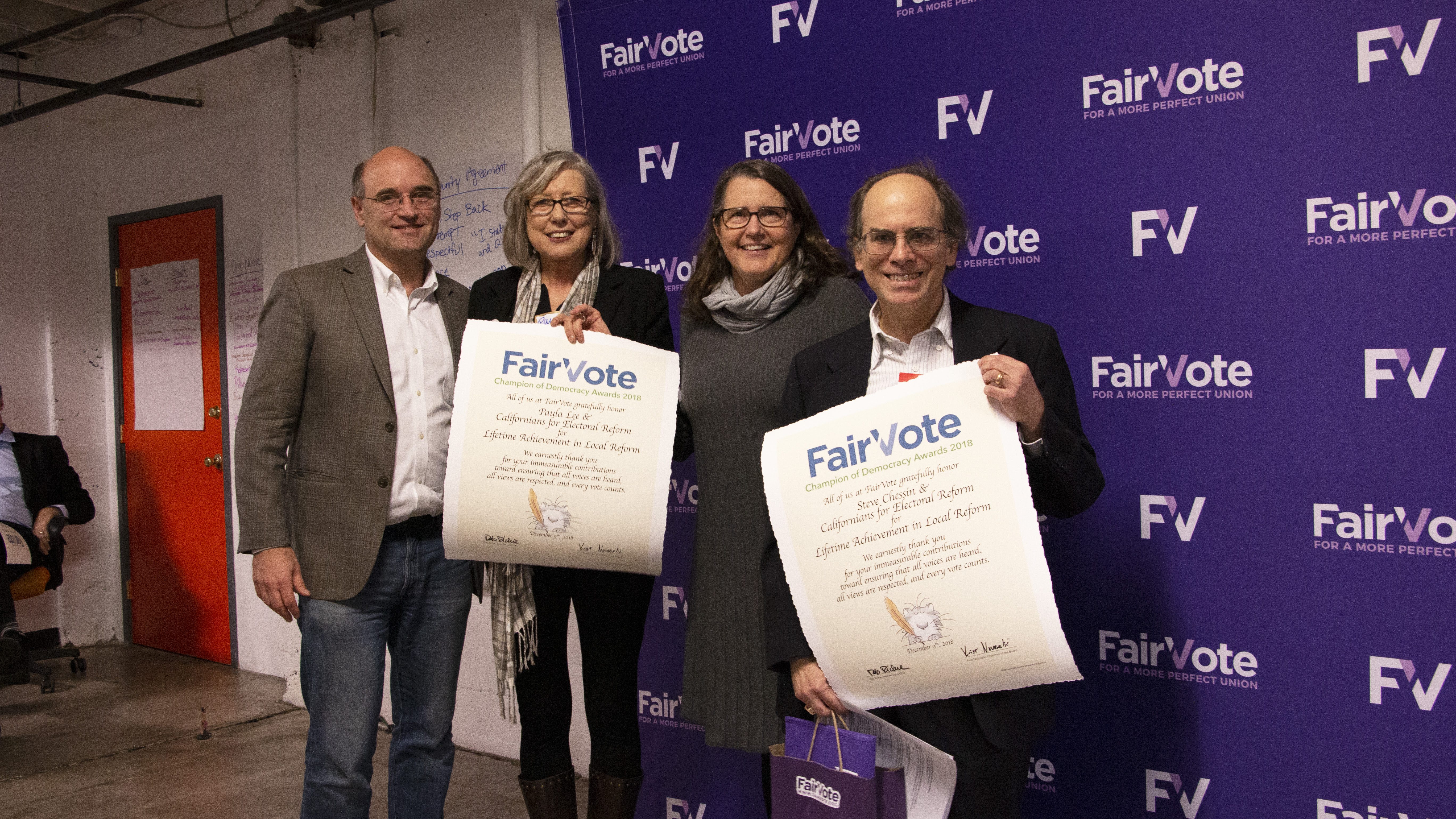
Fairvote California and the national Fairvote held a West Coast RCV Activist Summit December 8th and 9th in Oakland. It was a tremendous success, with over 100 activists showing up to learn how to organize, how to educate about RCV and PR, how to have an effective digital strategy, etc. In addition, there were speakers and guests at the summit and reception like congresswoman Barbara Lee, Oakland mayor Libby Shaaf, council-members, school board members, and governmental election staff people. People came from all over California, and about 20 people came from out of state. Almost half the attendees were women, and there were lots of Latino and Asian participants.
Very special for CfER was the love shown for our group, and new activists who joined at the Summit. Our own Steve Chessin and Paula Lee were recognized with Champions of Democracy awards for lifetime achievement for their many years of hard and effective work for PR and IRV.
Overall it was a tremendous boost for the movement in California. Thanks Fairvote, and thanks to everyone that was able to attend.
PR ENDORSED BY THE NY TIMES!

The New York Times had previously endorsed Rank Choice Voting. This time, they endorsed proportional representation (although they didn’t call it that).
https://www.nytimes.com/interactive/2018/11/10/opinion/house-representatives-size-multi-member.html
PRESIDENT’S LETTER
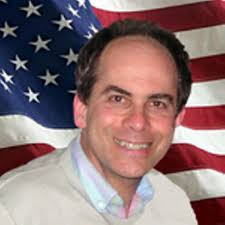
First, my apologies for the lateness of this newsletter; I was the bottleneck. There’s a lot of good content in it.
Second, Happy New Year! We hope to see a bill introduced this year that would allow general law cities the same right to use ranked choice voting that charter cities have, similar to the one that we had in 2016. (If at first you don’t succeed, ….)
Finally, if you are also a member of the League of Women Voters, you have an opportunity to support a concurrence statement that will be considered by all local Leagues in California in the next few months.
Please watch for your local League’s program planning meeting date and attend to support the proposal to “Support election methods at each level of government that encourage participation, are verifiable and auditable, and enhance representation for all voters.”
If you aren’t a member of the League, but know someone who is, you can tell them about the proposal and ask them to attend their local League’s program planning meeting to support it.
If you have any questions, or would like more information on the concurrence statement, contact Paula Lee, LWV Sacramento County, at paula.lee@comcast.net.
Thanks,
— Steve Chessin, President
WHO ARE WE?

Californians for Electoral Reform has been working for Proportional Representation and Ranked Choice Voting for over 20 years, and we continue to work on these issues actively. We are an action-oriented group, with chapters and contacts around the state, working in the State Legislature, and working in many local communities, promoting and educating about PR and RCV.
We have led successful campaigns for RCV in San Leandro, Oakland, San Francisco, and Berkeley, and spoken to thousands of people. RCV is now much more well known than it was 20 years ago, and is being seriously considered in several jurisdictions around the state. We have twice got legislation through both houses of the legislature and to the governor’s desk. We are well known in Sacramento and in electoral reform circles, and have a lot of respect in Sacramento and statewide.
JOIN US! You can join for free. You can also send in a little (or a lot of) money to help the movement if you can. If you have time and energy you can get involved in a campaign or education work. If a friend sent you this newsletter, and you want to get our quarterly newsletter and monthly updates, you can do that too, at no cost. Click here to join the movement for PR and IRV!
NEXT MONTH

In February, we’ll be bringing you a brief update on electoral reform.

— CfER Staff
